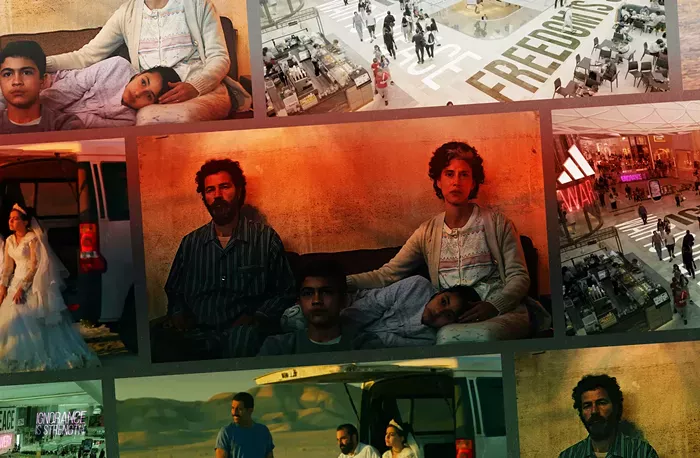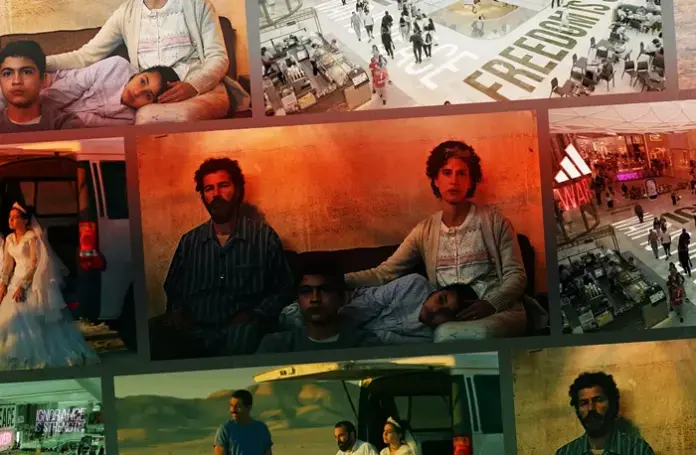This post was originally published on this site

I recall, as a young man, reading a line in Oscar Wilde’s The Importance of Being Earnest and saying to myself: “This is the truth! The plain and simple truth!” Wilde, the saint of dandies, wrote in that play that: “When one is in town amuses oneself. When one is in the country, one amuses other people. It is excessively boring.” This is exactly how I feel every time I leave the city. What am I going to do in the country or a town? I have never understood the “weekend getaway” or “the great outdoors.” Why must one get away from having lots of things to do to having nothing to do? As for the great outdoors, it can be found in many city parks.
I bring all of this up because Orcas Island is, yes, outside of the city, but it’s a place where one “amuses oneself”: it has great restaurants, bars, art events. Of the last, one only has to mention the Orcas Island Film Festival, which runs, this year, between October 15 and 19. This festival is the very definition of boutique: it’s small but devoted to the very best that world cinema has to offer. This is its reputation. And so, as a city person, you have two advantages on Orcas Island: lots of things to do, and a festival with high-grade films.
Now, if I could, I would watch everything in this film festival. But I’m a mere mortal; I can only do so much, one day at a time. And so this is it: three recommended films in a festival with over 35 films.
Orwell: 2+2=5
Raoul Peck
(France | 159 minutes)
I composed this review while visiting Portland, Oregon, my fourth favorite city. What was so terrifying about the place was how peaceful it was. And what was terrifying about this fact—people walking dogs, people visiting coffee shops, people biking, people in bars—was how it so easily disproved Trump’s insistence that it’s a war zone. Any television crew in the US could film and air this plain fact in minutes. But it wouldn’t matter because, as Raoul Peck’s documentary makes clear, the US is in a very dark place. To say Portland is run by a terrorist organization and is burning to the ground is the same as saying: 2+2=5.
Peck is known in the US for what I think is his weakest film, I Am Not Your Negro, a documentary about James Baldwin that was nominated for an Oscar in 2017. But Peck’s masterpieces number three: Lumumba (2000), The Young Karl Marx (2017), and his latest work, Orwell: 2+2=5 (2025). The last is a documentary that has three components. One: the class structure of what Fela Kuti famously called “colonial mentality.” Two: a humanizing portrait of a mythologically large 20th-century social commentator. And three: matching contemporary forms of authoritarianism with what’s described in the pages of Orwell’s most-famous books, Animal Farm and 1984. This is where Trump enters the picture. He and his kind, with the help of billionaires, are building a world that’s putting Big Brother in the shade. Peck, however, views Trump not as exceptional but systemic. There is nothing new about him. And what you will not find anywhere in the world is a political system that’s incapable of producing an authoritarian. This, I think, is Peck’s ultimate message.
It Was Just an Accident
Jafar Panahi
(Iran | 104 minutes)
In 2010, Iran convicted one of its greatest directors, Jafar Panahi, of “propaganda against the regime.” The filmmaker, who played a key role in the Iranian new wave movement of the 1990s, then spent the next 14 years in prison and house arrest, making, whenever possible, small clandestine films, some of which were shot on iPhones. Panahi returned to the international stage this year with a proper feature film, It Was Just an Accident, which screened at Cannes 2025 and NYFF 2025. (Panahi attended both events and, justly, received lots of praise and press.)
Now, you’d think Panahi learned his lesson by now. That his first major film after serving time would be as careful as Asghar Farhadi’s A Separation. But no. He went right back to where left off in 2006 with Offside, one of his masterpieces, and continued his fierce (fearless) critique of the Iranian state, politics, and society. But there is much more to this new film, which concerns a group of people who’ve, by accident, captured the intelligence officer who brutally tortured them while they were detained by the secret police. Because they were blindfolded during interrogations, they are not 100 percent sure if the man they have in their hands is the monster. The film is a journey through this twilight. Should they kill him? Should they not?
Accident ends with a shocking revelation. Panahi has decided to put not just the Iranian government on trial but the very state of our humanity. This film, which provides no easy answers, is certainly one of Panahi’s greatest works.
All That’s Left of You
Cherien Dabis
(Jordan | 145 minutes)
The day I watched All That’s Left of You, which provides a generational perspective of the plight of Palestinians, I saw on the BBC and Al Jazeera images of thousands upon thousands of people returning to what remained of Gaza. A truce between Hamas and the Israeli government had materialized a few days before. And even while that agreement’s ink was still wet, “large numbers [of people were heading] north up damaged narrow coastal roads towards the collapsed towers and ruined buildings of the territory’s biggest city.”
The second feature by Cherien Dabis, a Palestinian American who is most known for directing episodes of the hit comedy-mystery series Only Murders in the Building, is made for tears, not laughs. All That’s Left of You begins, as philosophers like to say, at the beginning. The British are leaving and the Zionists are entering Mandatory Palestine. And so it’s been one occupier (1920–1948); to another (1948–today). A citrus grower, Salim, loses his land, his means of making a living, and almost his family. As the years pass, the situation only gets worse and worse. The paradise of citrus groves becomes nothing more than a dream, and the present is shaped entirely by the harsh economic realities of an occupied West Bank. Dabis, who is also a star in the film, simply wants to tell this story. And she directed it with this clarity in mind. No distractions. Just look at the catastrophe directly and tell it like it is. The film has a lot of sorrow and several poetic moments. The damage of 1948 is clearly far from resolved, even with the truce. All that’s happened is it’s been kicked down the road like a can.
Orcas Island Film Festival takes place October 15–19 at various venues on Orcas Island.



















